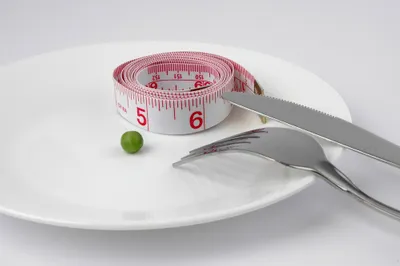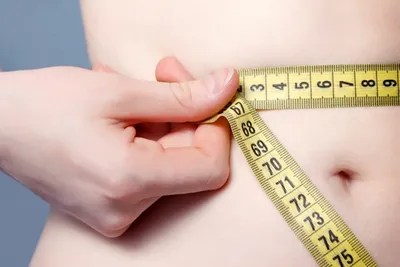For hundreds of years, we have fought what seems like a losing battle with fat. From diets of vinegar to swallowing tape-worms, people have sacrificed taste, fun, and even their lives for a chance to wear skinny jeans. The need to lose weight fast has also fuelled the diet and fitness industry to offer powders, programs, and pills that claim to leave you long, lean, and ready for the beach in just 6- to 12-weeks! Unfortunately, all the average dieter will find in these quick fixes is disappointment on the weight loss roller coaster (while promising themselves that this time will be different)…isn’t that the definition of insanity?
The desire to look good is first and foremost in many people’s minds. There will always be a new diet regime or exercise program that promises impressive results. So if we generally know diets don’t work and exercise regimes are quickly dropped…why do we continue to believe the next one is “the one”? The fact is, our wishful shrinking is not only making us fatter, but this false hope leads to nothing but shame, guilt, and a feeling of failure (not to mention a double date with Ben & Jerry). The following offers a glimpse into the dark side of our need to diet and offers a new shift towards a healthier strategy…
1. Food Restriction Can Morph Into Something Sinister
Almost every diet begins with an introductory list of the bad foods and good foods. Labeling foods good, bad, or ugly is the first step to cultivating a disordered relationship with food. In fact, there is no such thing as a bad food, it’s all just food. In addition, when one eats a “bad food” it is usually followed by feelings of guilt and shame. The scary fact of the matter is dieting is one of the main causes of eating disorders. Something that starts out so benign and in the name of health can end up taking our joy, our spirit, and our lives.
For parents, it is important to role model the behaviors and attitudes you want your children to adopt as healthy adults. Avoid labeling food and place focus on the healthy, whole foods like vegetables, fruit, grains, and meats or alternatives. It is also important to enjoy the fun foods once in a while, as a family, without denouncing them as bad. It’s a tough job for anyone to avoid the influences of our diet culture, but establishing a healthy relationship with the food on our plates is a great start to a healthy mind and body.
2. Lack of Results Can Feed Emotional Eating
What is the first thing we start to look for when focused on weight loss? Weight loss! We may psychologically suffer as we eat more vegetables and less pasta while waiting impatiently by the mirror for the first sign that our hard work and sacrifice is paying off. Inevitably, when we see the same person, love handles and all, same as the week before, we end up making a run for that tub of Chunky Monkey out of frustration and extreme feelings of disappointment.
Emotional eating is a popular coping mechanism for many of us. When negative feelings come up, we tend to eat those foods that will bring us good feelings (a.k.a. anything with salt, sugar, and fat) to manage the feelings that make us sad. The best diet ever comes from writing down those feelings and going through the process of feeling them without the aid of cupcakes. The key to combat eating emotionally is to become aware of the patterns and replace eating with something else like a walk, a shower, or a project. For some, this may be a superficial fix for a deeper problem. If this is the case, soliciting the support of a helping professional may be what is needed to regain a sense of control and kick the habit.
3. Repeated Weight Loss Can Be a Health Hazard
Our bodies (and minds) go through a lot of abuse throughout a lifetime of chronic dieting. Psychologically speaking, a yo-yo dieter may suffer from depression and a sense of hopeless experiencing weight gain after another “successful” loss. Unfortunately, once a dieter becomes depressed the cycle of emotional eating and depression continues. Unfortunately, the old adage that suggests putting down the fork and putting on the running shoes is no match for the feelings of shame, guilt, sadness, and hopeless that come from another dieting disappointment.
Yale University’s, Dr. Kelly Brownelle and his colleagues, examined the physiological effects of the yo-yo dieter and found chronic dieting can alter the metabolism. In addition, Dr. Isadore Rosenfeld, a Cardiologist and professor of Clinical Medicine in New York underlines the health risks dieters take when restricting calories to under 1200-calories per day. These health risks include heart stress, weakened immune system, unsafe reduction of the nutrients, and ironically, weight gain. So what’s the dieter to do? Do the body a favor and just say “no” to the cleanses, to the detox diets, and to all of those eating plans that reduce the calories to unsafe levels…you will be healthier for it.
4. Constant Dieting Takes Away the Joy in Life
The psychological stress placed on a chronic dieter can remove any and all life enjoyment. Many dieters will begin to turn down social invitations for fear there will be a momentary lapse or relapse into old eating behaviors. More importantly, a diet that is lacking balance, or the inclusion of all nutrients needed for good health, may lead to feelings of fatigue and even depression. It’s hard to be happy when a diet removes those important nutrients for good mental health.
Chronic dieting and a negative body image go hand in hand. Ironically, diets tend to shine a spot light on the body and those parts in desperate need to be changed in the name of perfection. As a result, the dieter is never good enough, thin enough, or perfect enough. It never really is about “the last ten pounds”. What if there was a diet that enhanced the dieter’s body image and resulted in greater joy and contentment in life? It’s called health and it’s within us to achieve (and free of charge to achieve it).
5. The Pressure to Lose Fast Leads to Relapse
If we could boil down all the reasons why diets and weight loss programs don’t work the result would be our desire for the quick fix. Our immediate need to get what we want when we want it throws a giant wrench into some of the best laid plans for weight loss. Nutrition and exercise programs promise results within months, but the reality of long term (a.k.a. long-lasting) weight loss takes years for the successes to be achieved. Changing one’s lifestyle behavior will always be one of the hardest challenges to master. Yet we expect it to happen overnight.
The key to keeping pounds off for the long term is creating small changes over long periods of time. Choosing a long-term goal of 12-months will reap more rewards than a goal over a few. Moreover, outlining small goals for each of the 12-months will deliver little successes overtime that will help to strengthen one’s confidence and regain some of that hope that was lost after the last diet that didn’t work. Most importantly, a shift towards health versus weight loss needs to occur for weight loss to be successful. Researcher Dr. Linda Bacon, author of Health at Every Size, has noted that weight loss is more successful when the focus of nutrition and exercise is about the health benefits. As a result, the rewards will come sooner delivering more energy, alertness, and a better sleep (just to name a few). Continuing to focus on the external results of losing those love handles will only lead to more disappointment, hopeless, and emotional eating. Screw skinny…chose health!








